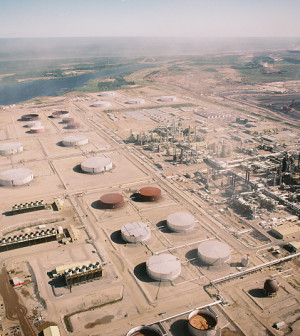- 10 Strategies to Overcome Insomnia
- Could Artificial Sweeteners Be Aging the Brain Faster?
- Techniques for Soothing Your Nervous System
- Does the Water in Your House Smell Funny? Here’s Why
- Can a Daily Dose of Apple Cider Vinegar Actually Aid Weight Loss?
- 6 Health Beverages That Can Actually Spike Your Blood Sugar
- Treatment Options for Social Anxiety Disorder
- Understanding the Connection Between Anxiety and Depression
- How Daily Prunes Can Influence Cholesterol and Inflammation
- When to Take B12 for Better Absorption and Energy
Smog Threatens Visitors to U.S. National Parks: Report

Air pollution afflicts many national parks across the United States, a new study suggests.
Air quality in some of the parks is as bad or worse than in some major cities because of pollution from sources such as coal-fired power stations, the National Parks Conservation Association says in a new report.
“Our parks remain under threat from air pollution, harming visitors’ health, reducing visibility, and driving the impacts of climate change,” said Ulla Reeves, manager of the association’s Clean Air Campaign.
Researchers examined 48 national parks with the greatest Clean Air Act protections. They discovered that 75 percent of them sometimes have “moderate” or worse ozone pollution, according to the Environmental Protection Agency’s Air Quality Index. These levels are dangerous for sensitive groups, such as children with asthma.
Four parks — Joshua Tree, Sequoia, Kings Canyon and Yosemite — regularly have air that’s considered unhealthy. Some of the parks have unhealthy air for more than a month each year, typically during the summer, the report notes.
All 48 parks studied have haze pollution that limits how far people can see. On average, park visitors miss out on 50 miles of scenery, which is equal to the length of Rhode Island, the researchers point out.
The study also noted that 90 percent of national parks are experiencing extreme weather linked to climate-changing air pollution. The parks are hotter, wetter or drier than they were over most of the past century.
“As Americans flock to our national parks this summer to enjoy the great outdoors, they expect and deserve to find clean, healthy air. Sadly that is not always the case,” Reeves said in an association news release.
More information
The California Environmental Protection Agency outlines the health effects of air pollution.
Source: HealthDay
Copyright © 2026 HealthDay. All rights reserved.










